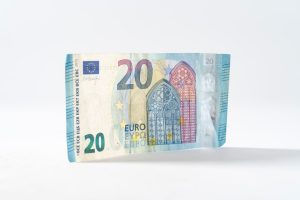Forex trading has become increasingly popular in South Africa, with numerous individuals investing in the currency market in the hope of making profits. However, like any other investment venture, forex trading is subject to taxation, and it is important to understand the tax implications of forex profits in South Africa.
Forex trading is considered a type of capital gain, and the profits made from it are subject to capital gains tax (CGT). CGT is a tax levied on the profit made from the sale of an asset, including forex trading. The tax is levied on the difference between the purchase price of the asset and the selling price, and it is calculated as a percentage of the profit made.
In South Africa, the CGT rate for individuals is currently set at 18%, while companies are taxed at a rate of 22.4%. It is important to note that CGT is only applicable on profits made above a certain threshold, known as the annual CGT exemption. The annual CGT exemption in South Africa for the tax year 2020/2021 is set at R40,000 for individuals and R80,000 for companies.
For example, if an individual invests R100,000 in forex trading and makes a profit of R50,000, the CGT will be calculated on the R10,000 above the annual exemption. The CGT on this amount will be 18%, which equates to R1,800.
It is important to keep accurate records of forex trading activities, including the purchase and sale of currencies, as well as any associated costs such as broker fees, commissions, and transaction fees. These records will be used to calculate the CGT liability when filing tax returns.
In addition to CGT, forex traders in South Africa are also subject to income tax. Income tax is levied on the profits made from forex trading, and it is calculated based on the individual’s income tax bracket. The income tax brackets in South Africa are progressive, meaning that the more an individual earns, the higher their income tax rate will be.
The income tax rate for individuals in South Africa ranges from 18% to 45%, depending on the individual’s income level. The tax rate for companies is a flat rate of 28%. It is important to note that income tax is levied on the total income earned by an individual, including any profits made from forex trading.
For example, if an individual earns a salary of R500,000 and makes a forex profit of R50,000, their total income for tax purposes will be R550,000. The income tax liability will be calculated based on the individual’s income tax bracket, which will depend on their total income.
In conclusion, forex trading is subject to taxation in South Africa, and traders are required to pay both CGT and income tax on their profits. It is important for traders to keep accurate records of their trading activities and to understand the tax implications of their profits. Seeking the advice of a tax professional can also be helpful in navigating the complex tax laws surrounding forex trading in South Africa.





